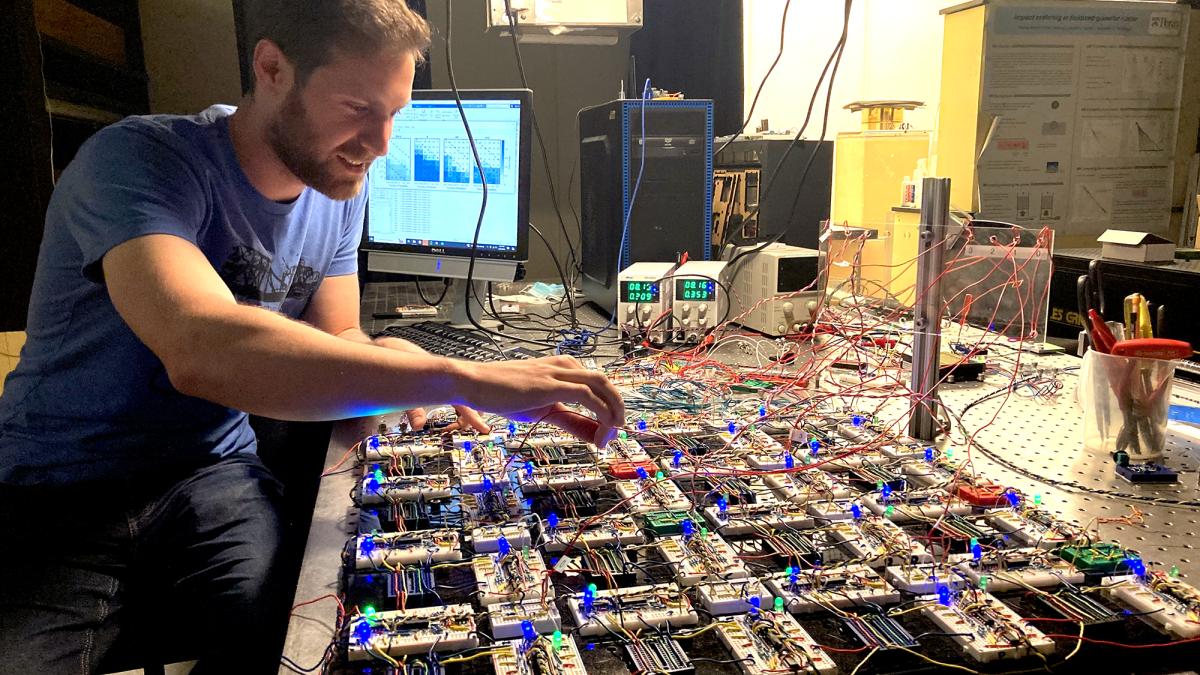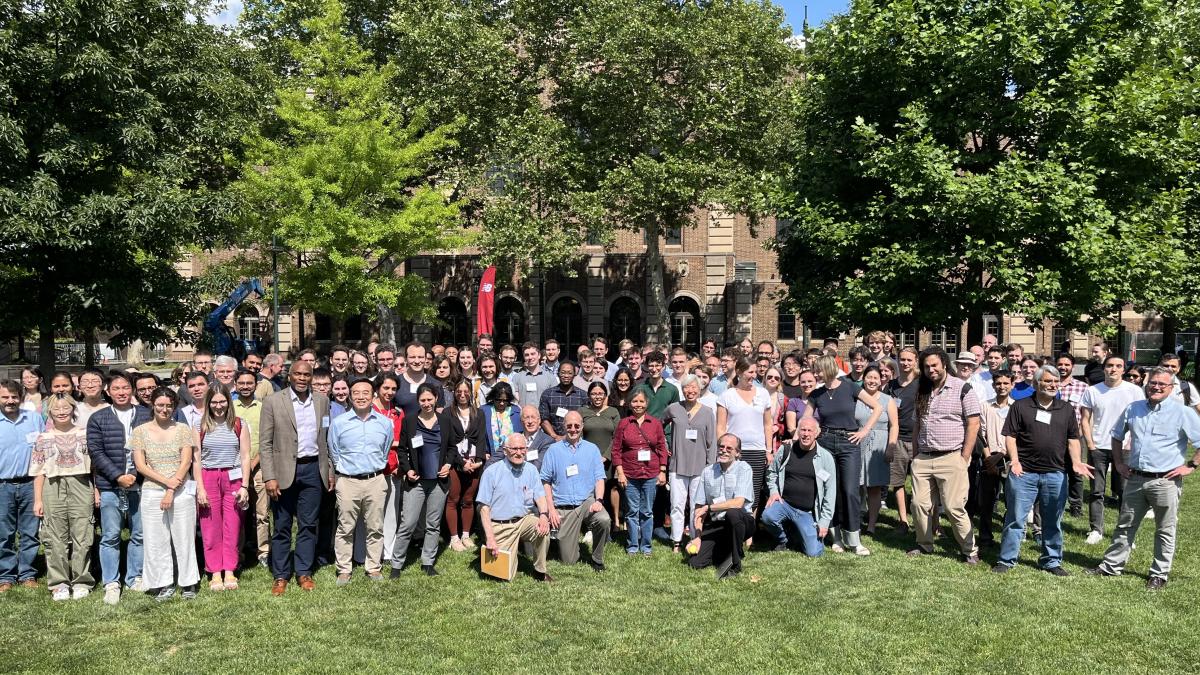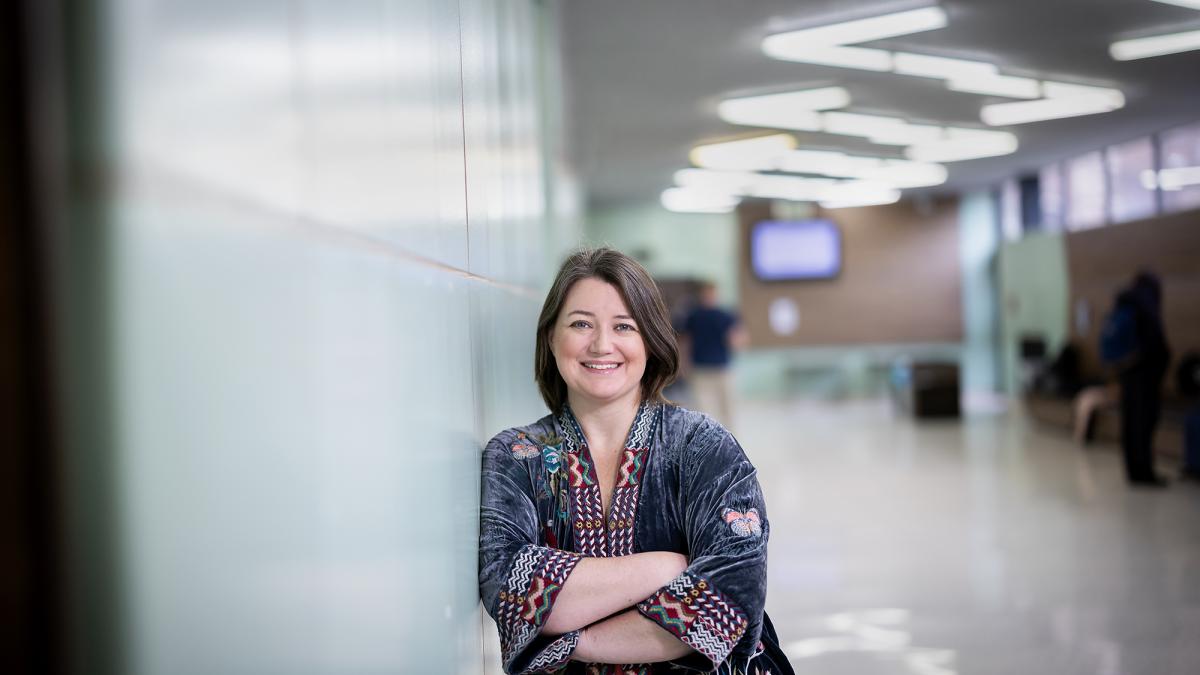Upcoming Events
Condensed and Living Matter Seminars
Condensed and Living Matter Seminar: Computing with Physical Systems
Peter McMahon (Cornell University)
Condensed and Living Matter Seminars
Condensed and Living Matter Seminar: "TBA"
Peter Yunker (Georgia Tech)
Seminars, Astro Seminars
Astrophysics Seminar: "TBA"
Jahmour Givans (Princeton University)
Department Colloquia
Colloquium: "TBA"
Robyn Sanderson (University of Pennsylvania)
Seminars
Astrophysics Seminar: "TBA"
Akaxia Cruz (Flatiron Institute/Princeton University)
Condensed and Living Matter Seminars
Condensed and Living Matter Seminar: "TBA"
Rebecca Kramer-Bottiglio (Yale)
Seminars
Astrophysics Seminar: "TBA"
Patrick Breysse (NYU)
Condensed and Living Matter Seminars
Condensed and Living Matter Seminar: Van der Waals magnets and antiferromagnets interacting with electron spins
Dan Ralph (Cornell University)
Department News
Four academic journeys explored
PennToday explores Vijay Balasubramanian's academic career.
Read MoreA first, physical system learns nonlinear tasks without a traditional computer processor
Sam Dillavou, a postdoc in the Durian Research Group in the School of Arts & Sciences, built the components of this contrastive local learning network, an analog system that is fast, low-power,
Read MoreCenter for Soft & Living Matter Kickoff Meeting
The new Center for Soft and Living Matter at the University of Pennsylvania brings together over 60 faculty and their
Read MoreFrom English Major to Doctor, Lawyer, VP
Vivian Lee, C’99, CGS’01, M’06, considers herself a Penn lifer, having done undergrad, medical school, and medical residency here before becoming an assistant professor of ophthalmology at the Pere
Read MoreResearchers upend theory about the formation of the Milky Way Galaxy
New findings by Robyn Sanderson and collaborators suggest galaxy’s last major collision was billions of years later than previously thought.
Read More
It is incumbent on us all as a global community of scientists to actively participate in the diversification of science, technology, engineering and mathematics by directly and intentionally engaging those groups that are underrepresented in our individual fields.
The Penn Physics & Astronomy Department offers a variety of research opportunities that bring students of a range of academic levels to Penn.








